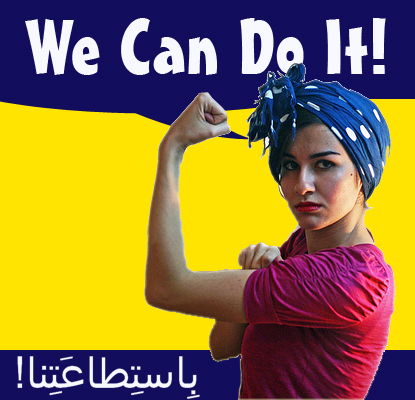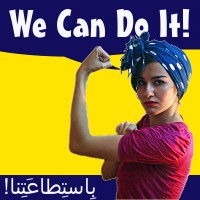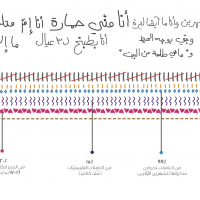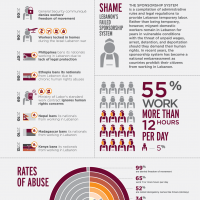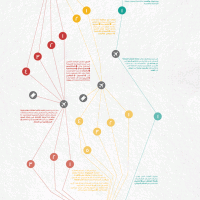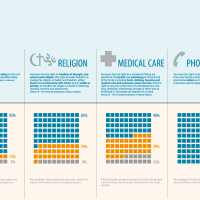Why and how have migrant domestic worker’s rights been violated in Lebanon?
Five decades after the development of the kefala (sponsorship) system, Lebanon’s two-hundred thousand migrant domestic workers continue to be denied central human rights like the right to self-realization which is interlinked with the right to freedom of movement, just conditions of work and the right to legal recognition.
The issue of domestic violence and the rights of migrant workers in Lebanon has already been covered by Green Prophet, but the origin of such human rights issues has never been fully deconstructed before. Here, for the very first time, the details of how the sponsorship system has brought about such abuses is revealed through a detailed infographic story board designed and researched by AltCity (Dima Saber), the Migrant Worker Task Force (Jeremy Menchik) and graphic designer Joumana Ibrahim.
The team’s work has been central to informing the public about the nitty gritty detail of the sponsorship system developed in the 1950s to provide temporary labor during economic booms, which has become the root cause of perpetuating human rights violations for migrant domestic workers in Lebanon.
The system ensures that the immigration status of the domestic worker is essentially bound to their sponsor, therefore migrant domestic workers cannot enter the country, transfer employment, travel within the country, or leave the country without permission from their sponsor.
It is common that the sponsor confiscates the worker’s passport and travel documents, restricts their contacts outside the home, and often prevents them from leaving the home entirely.
Migrant domestic workers are thus completely dependent on their sponsor for food, housing, healthcare, wages, leisure, communications, and other basic freedoms. It is no exaggeration to say that this equates to modern day slavery.
The kefala system violates basic human rights as postulated in the Lebanese constitution and the Universal Declaration of Human Rights (English, Arabic, Farsi, Hebrew and Turkish) which declare that no one shall be held in conditions of slavery or servitude, cannot be subjected to inhuman or degrading treatment, have the right to work, the right to free choice of employment, the right to just conditions of work.
The facts, figures, trends and human rights for migrant domestic workers in Lebanon are clearly revealed through these infographics.
A recent Human Rights Watch’s report shows a justice system with inaccessible complaint mechanisms, lengthy judicial procedures, and restrictive visa policies that dissuade many workers from filing or pursuing complaints against their employers.
Daunted, many of the workers settled for a ticket home, hoping to end their nightmare. This must change.
Infographics images by Imad Gebrayel, Joseph Maalouf, Lucie Momdjian, Dina Alwani, Sarah Habli, Nashaat Jurdy, Dana Halaby, Nancy Kouta, Rita Saad, Bruna Tohme, Reem Ismail, Saad Malaeb, Jeremy Menchik, Mohamad Cheblak and Joanne Harik

